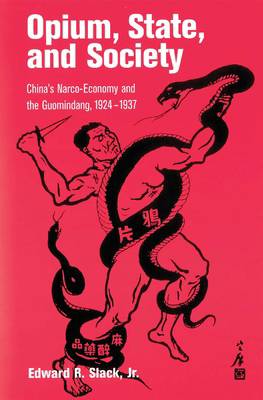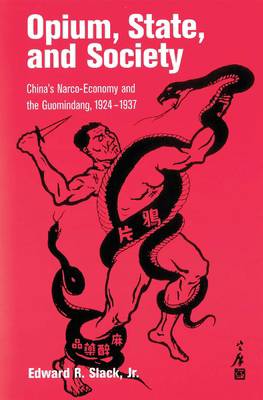
- Retrait gratuit dans votre magasin Club
- 7.000.000 titres dans notre catalogue
- Payer en toute sécurité
- Toujours un magasin près de chez vous
- Retrait gratuit dans votre magasin Club
- 7.000.000 titres dans notre catalogue
- Payer en toute sécurité
- Toujours un magasin près de chez vous
Opium, State, and Society
China's Narco-Economy and the Guomindang, 1924-1937
Edward R Slack
Livre broché | Anglais
35,45 €
+ 70 points
Description
Surprisingly little has been written about the complicated relationship between opium and China and its people. Opium, State, and Society goes a long way toward illuminating this relationship in the Republican period, when all levels of Chinese society--from peasants to school teachers, merchants, warlords, and ministers of finance--were physically or economically dependent on the drug.
The centerpiece of this study is an investigation of the symbiotic relationship that evolved between opium and the Guomindang's rise to power in the years 1924-1937. Despite attempts to find other sources of revenue, the Guomindang became increasingly addicted to the tax monies derived from the drug trade prior to the war with Japan. Based solidly on a previously untapped reservoir of archival sources from the People's Republic and Taiwan, this work critically analyzes the complex realities of a government policy that vacillated between prohibition and legalization, and ultimately sought to curtail the cultivation, sale, and consumption of opium through a government monopoly.Spécifications
Parties prenantes
- Auteur(s) :
- Editeur:
Contenu
- Nombre de pages :
- 256
- Langue:
- Anglais
Caractéristiques
- EAN:
- 9780824823610
- Date de parution :
- 01-10-00
- Format:
- Livre broché
- Format numérique:
- Trade paperback (VS)
- Dimensions :
- 157 mm x 228 mm
- Poids :
- 362 g







